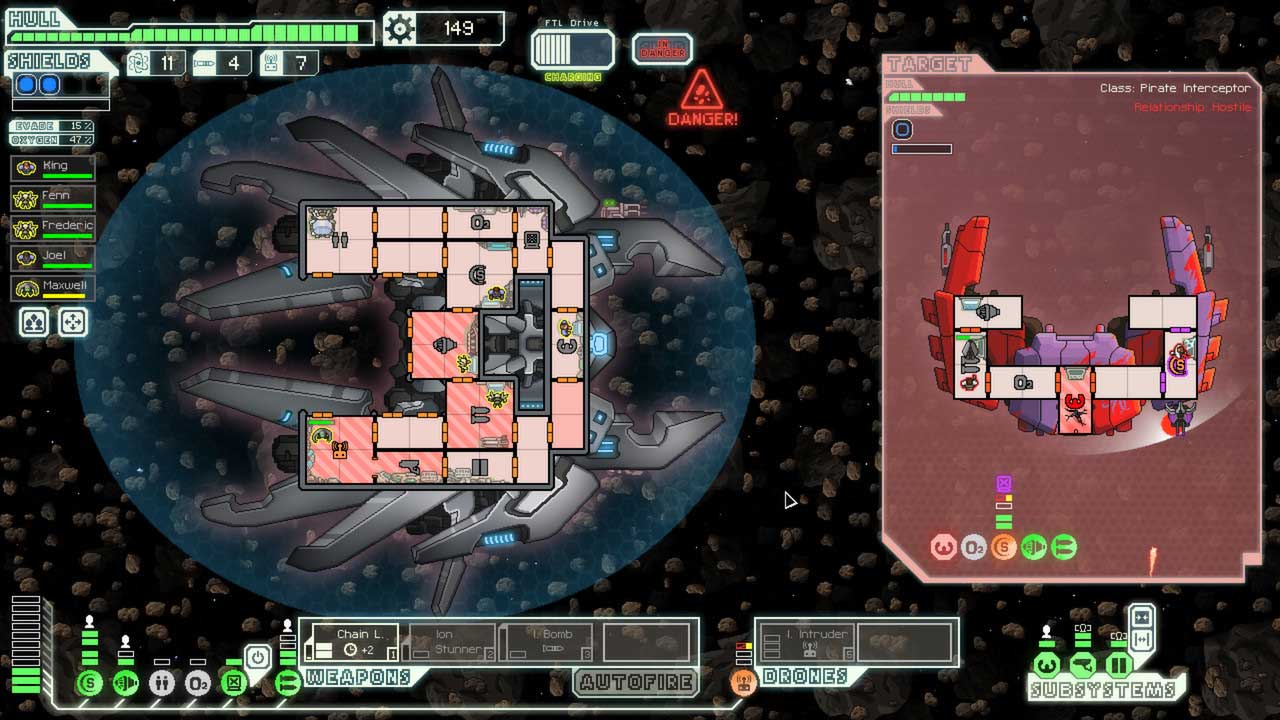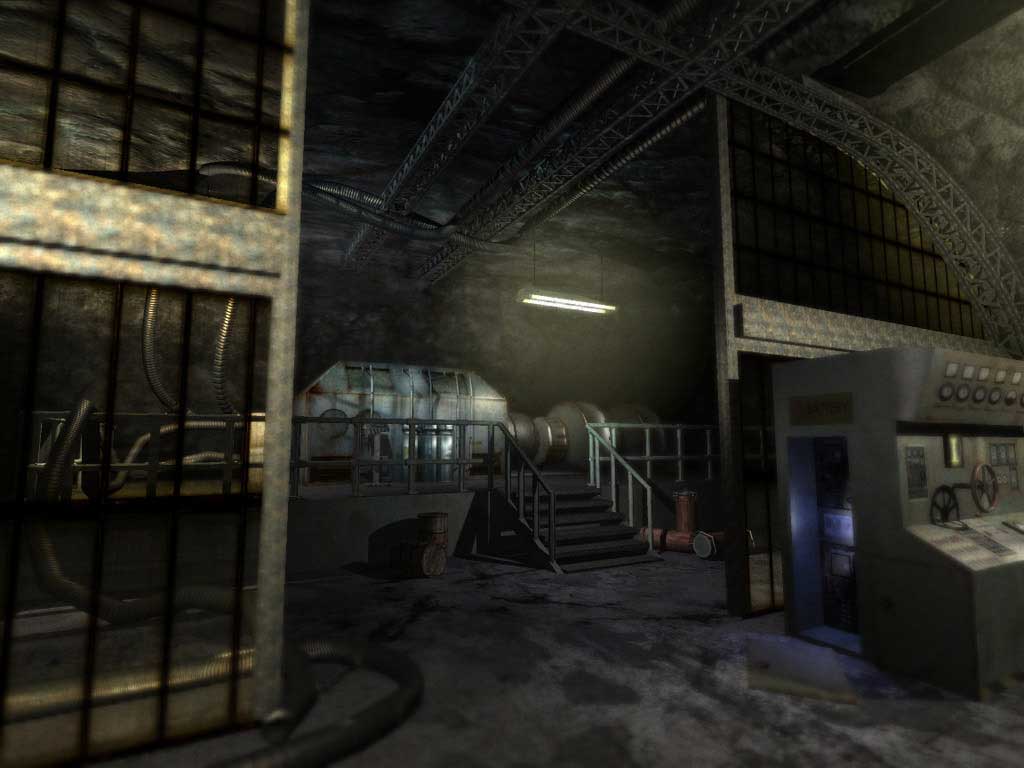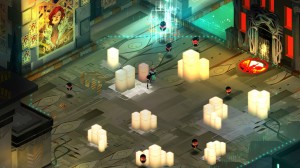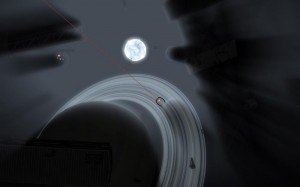As the indie games market continues to grow, all-stars that depict the best of what critics and players alike have come to expect of indie titles begin to appear. Many gaming fans include Faster Than Light (FTL) and the Penumbra series among the standouts. Narrative designer Tom Jubert developed much of the experience that those games are known for, and has recently released The Swapper which is receiving plenty of critical acclaim itself for its puzzles and storytelling techniques.
Jubert is also something of an anomaly within the indie games development world, in that he has little to no programming or artistic background. Instead, he successfully markets his ability to produce quality narrative experiences in the games he chooses to work on. With many successful titles under his belt and a unique role within the video games industry we reached out to Jubert who answered a few questions about his experiences in the industry, and his thoughts about some of the discussions going on in the video game community today.

(Game play image from FTL)
Jesse Tannous: Describe your job as a narrative designer, and if you could, elaborate on your particular style of approaching narrative in the games you work on. For instance, FTL and Swapper are very different narrative experiences where in FTL players essentially build their own sci-fi adventures and Swapper provides a lot of extra details that players can choose to dig into or skip through.
Tom Jubert: So a narrative designer, as opposed to a writer, is someone who takes some responsibility for the overall narrative experience in a game. That may include writing the script, but will usually also involve a bunch of work on plotting and world design, as well as involvement in general game design and feedback on other elements. On a bunch of projects you may find the creative director plays this role, and then hires a writer to make their vision happen – on others they bring in someone like me.
When I approach a new project, I try to identify what the core ideal of the game is – what’s the hook that piqued my interest in the first place, what is this thing’s identity? In FTL it was the simulation angle – the experience of really captaining a starship in a strange and dangerous galaxy. In The Swapper it was the titular device itself, and the questions that raised. Once I have my hook, I try to build a narrative experience around that. Everything I do is with the conscious intention of drawing attention to or supporting that core ideal.
In FTL this approach meant developing a script that never got in the way of the dynamic gameplay for too long, but nonetheless gave a flavour of that epic space western sort of feel, and gave you decisions that felt captain-like in magnitude. In The Swapper it meant moving the story away from cloning and towards matters of consciousness, and presenting it in a way that was somewhat a reflection of the gameplay – a mystery to unravel.
I almost always work in this quite methodical, calculated kind of a way. The whole story is an equation, with values that need tinkering in order to output the correct conclusion.
JT: I can’t seem to find much of a programming or artistic background in your years of experience which seems unique to me in the mainstream and especially indie game fields. How does your collaboration with indie developers work and how do you find success with focusing on narratives?
TJ: Thinking about it, I imagine it’s a whole lot less common in indie teams to lack those skills. AAA devs have had producers and writers and other less traditional development roles for some time, but when there’s only four of you, you need everyone to pull their weight more directly, which means a lot more of those traditional dev skills shared across the team. Of course, there are plenty of writers in both fields who, like me, have no art or programming skills!
So really the terms on which I work are always developing. On Penumbra: Overture I did all the work for free, and I think I got paid about £5,000 out of the proceeds when we released. Since then I’ve worked for indies on a mix of royalties and up front payments, depending on the project. What this enables me to do is pick and choose really strong projects, and then find terms that work for the developer. This way a team of four guys – who maybe have all the traditional dev skills they need, but lack a writing background and the funds to bring a writer on staff – can nonetheless get access to the same narrative talent pool as the AAA studios.
For me the rebirth of indie over the last ten years has completely changed my career. If not for Penumbra, I wouldn’t even have a career; and if not for games like The Swapper and FTL I’d still be ploughing months of my life into big-budget games that will get canned before seeing the light of day (as I did for a number of years). How do I find success focusing on narratives? Simple: I’m lucky enough to be working at a time when there’s a multitude of indie devs finding creative ways to sell games with strong, ambitious narratives.
JT: How does the work you do with indie developers differ from your AAA work experience. Do you prefer one over the other or do they both have different elements you enjoy?
TJ: These days I like to think of what I do as being a collaboration, not a service. Okay, yes, I have an agent, and a day rate, but the financial bottom line isn’t why I’m here. I have enough work on now that I can afford to turn down jobs that my heart isn’t in and focus on things I really care about.
With that in mind, collaboration is the only way to look at it. I have done my time sitting in meeting rooms having arguments with marketing departments over whether or not a disabled protagonist will alienate the able-bodied audience. I have done my time working on games where I have to communicate with the entire dev team via a single producer, or where I’m not provided home-access to the current build, or where the design team rewrites my story without consulting me. Those things happen when you’re in a service-relationship.
Now, none of this is to say that a big team can’t be collaborative. Working with Croteam at the moment, which is around 20 strong, I’ve been blown away by how ‘indie’ it all feels. This is a studio where the founders are still the same guys who fix bugs and wrangle writers, and there’s a strong sense that everyone has their expertise, everyone relies on everyone else, and everyone’s passionate about what they’re doing.
Of course, having a bigger budget isn’t always a hardship!
JT: There exists a popular debate among gamers about what a “game” truly is where some argue that narrative driven games like Quantic Dreams Beyond: Two Souls or Heavy Rain aren’t games. Based on your blog Plot is Gamplay’s Bitch I’m interested in hearing more about your thoughts on this idea.
TJ: I think if we all stopped wasting our breath arguing over definitions we could fix a lot of problems. If you don’t want to call Heavy Rain a game, fine; but in that case there is some broader category of media called ‘Interactive Entertainment’ or ‘Non-Linear Video Experiences’ or whatever the hell which includes both games and Heavy Rain, and that’s the church I worship.
If I recreate the entirety of Super Mario Bros. in the real world and replace all the mechanics with actors is it still a video game? No, I guess not. But I don’t see why the hell what the mechanics are made of (ones and zeros or carbon-based lifeforms) should make the slightest bit of difference. As VR descends on us the lines are going to become increasingly blurry, and my sense is that anyone who boxes themselves into the narrow definition of ‘game developer’ expressed in the question may be working in a market segment rather smaller (relative to the industry as a whole) than it is today.
JT: What are some of the best indie and/or AAA games you’ve played that you believe mesh gameplay and narrative together well, and are those your favorite games for that reason?
TJ: I suppose there’s two sides on this coin. There’s things like World of Goo or Spelunky, where the entire structure of the core gameplay mechanics are expressive of the core themes of the narrative – which I love. Then there are the games which really tightly weave gameplay and narrative in a more detailed sense, things like Telltale’s series – which I also love.
This is certainly the area of games that I’m most interested – but that’s not to say there isn’t room for other kinds of experience. I liken it to the use of narration in movies. For a long time it was used clumsily to fill in the gaps, until film makers learnt to use scene setting and tropes as shorthand. Now in most contemporary films narration isn’t really necessary – there are better ways of doing it – but sometimes some particular set of circumstances makes narration a useful tool again (for satirical use, or a sense of the archaic, or a bunch of other possibilities). As we move forward, I think gameplay and narrative come closer together in general, while some games realize they’re better off without the story, and others develop their own niche which stick with the more divided format.
Jubert has plenty to say in relation to the game community on his blog, as well and hopefully it will mean more diverse and expertly crafted experiences are on the way from indie game developers as more professionals with specific skill sets like Jubert enter the market.

(Environmental artwork of Penumbra)
Jesse has been writing video game related articles and interviewing industry professionals for almost 3 years and strives to become a professional nerd.


